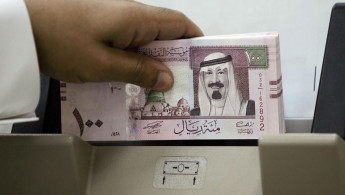Saudi living cost handouts will cost Riyadh $13 billion this year
A package of handouts to Saudi Arabian citizens to compensate them for austerity measures will top $13.3 billion in 2018, a Saudi minister said on Sunday.
King Salman announced on Saturday that state employees will be given a monthly payment of 1,000 riyals ($266) over the year to compensate for rising living costs after Riyadh increased gasoline prices and introduced value-added tax.
The government will bear the cost of VAT in some situations, while pensioners and soldiers will be given bonuses.
"The allocation of 50 billion riyals for this decree indicates the leadership's concern for the people's comfort and quality of living," Saudi Minister of Culture and Information Awwad bin Saleh Alawwad told the Saudi-owned al-Sharq al-Awsat newspaper.
The government will also spend 30 billion riyals ($8 billion) in 2018 on a household allowance scheme designed to cushion the impact of austerity measures on low and middle-income Saudi families.
Saudi Arabia doubled gasoline prices last week and implemented a five percent VAT on a broad range of goods and services.
The reforms are aimed at diversifying the oil-dependent economy, with economists estimating the government will have to raise around 40 billion riyals ($10.6 billion) in 2018 through VAT.
Officials say the rise in gasoline prices would generate tens of billions of riyals.
Eleven princes were detained by authorities in Saudi Arabia after they gathered at a royal palace in the capital Riyadh to protest austerity measures, local media reported on Saturday.
Saudi Arabia introduced a series of austerity measures over the past two years to boost revenues and cut spending as the slump in world oil prices led to ballooning budget deficits.
The kingdom posted an economic contraction in 2017 for the first time in eight years due to severe austerity measures.
The coming year's budget envisions record spending for the kingdom, a move meant to return the economy to positive growth.





 Follow the Middle East's top stories in English at The New Arab on Google News
Follow the Middle East's top stories in English at The New Arab on Google News
![Netanyahu furiously denounced the ICC [Getty]](/sites/default/files/styles/image_330x185/public/2024-11/GettyImages-2169352575.jpg?h=199d8c1f&itok=-vRiruf5)
![Both Hamas and the Palestinian Authority welcomed the ICC arrest warrants [Getty]](/sites/default/files/styles/image_330x185/public/2024-11/GettyImages-2178351173.jpg?h=199d8c1f&itok=TV858iVg)
